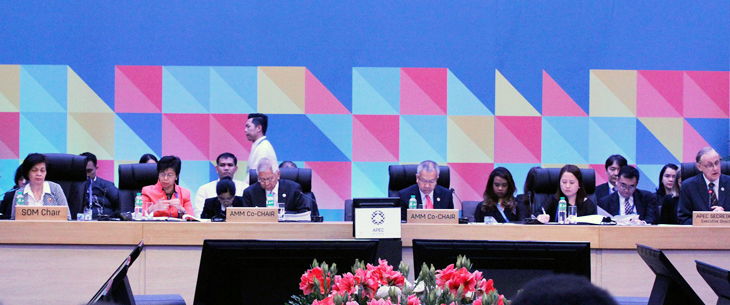
MANILA – The 27th Asia-Pacific Economic Cooperation (APEC) Ministerial Meeting held yesterday in Manila encouraged economic leaders to take concrete steps towards human resources development and address the quality of growth especially in the services sector.
“We strongly agreed that we must enhance human resource development and to that end, we agreed to pursue strategic cooperation on human capital development geared toward developing 21st century skills to increase people’s employability, productivity, and ability to respond to emerging business demands,” Foreign Affairs Secretary Albert del Rosario said in a press conference.
At present, the 2015 Ministerial Meetings had already reached agreements on APEC Services Cooperation Framework and developed a Services Competitiveness Roadmap.
This time pursuing human capital development and quality growth, discussions on services agreement and the relationship between trade and development have started.
More importantly, to achieve these goals, good governance played a role as quality growth did not only rely on the economic well-being of individuals but on how well growth can be sustained.
At the same time, the APEC ministers also presented a disaster risk reduction plan and food security action plan and called for a greater science, technology and innovation and a higher education.
“We endorsed APEC’s Disaster Risk Reduction Framework to facilitate collective work in building adaptive and disaster-resilient economies that support inclusive and sustainable development in the face of the “new normal” – the increasing frequency, magnitude and scope of natural disasters and the resultant disruption on the increasingly integrated and interlinked production and supply chains,” Del Rosario said.
“We endorsed an action plan on food security and blue economy, which will help ensure the security of the region’s food supply by addressing illegal, unregulated and unreported fishing among others,” he added.
The ministers tackled energy resilience, women empowerment and health-related issues as well.
“We are working on achieving the APEC aspirational target of reducing aggregate energy intensity by 45 percent from 2005 levels by 2035 through collaboration on energy-efficient and low carbon development,” Del Rosario said.